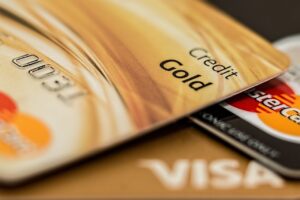When getting a personal loan, your credit score is one of the most important factors lenders will look at. A low credit score can make getting approved for a loan challenging and lead to higher interest rates and fees. This blog post will discuss the minimum credit score required for a personal loan. We will also provide tips on improving your credit score if it is below the minimum requirement.
What Is a Personal Loan?
A personal loan is a fixed-rate, fixed-term loan that gives you the funds you need for various purposes, such as consolidating debt or paying for an upcoming wedding or vacation. A good credit score or credit rating will help guarantee that you can secure personal loans and improve your credit history.
Most lenders will require a minimum credit score for personal loan applicants to qualify for a loan. This guarantees that the borrower will be able to repay the loan. Those with a minimum credit score for personal loan approval will likely have a higher interest rate.
How Do Personal Loans Impact Credit Scores?
Personal loans can have a few different impacts on your credit score. Here are some things to keep in mind:
They Can Help You Build Credit if You Make Payments on Time
One of the biggest factors in your credit score is your payment history. So, taking out a personal loan and making all of your payments on time can help improve your credit score.
They Can Hurt Your Credit if You Make Late Payments
Another impact personal loans can have on your credit score is if you make late payments. Just one late payment can cause your credit score to drop significantly. So, if you’re considering taking out a personal loan, ensure you’re prepared to make all of your payments on time.
They Can Help You Improve Your Credit Utilization Ratio
Another factor that impacts your credit score is your credit utilization ratio. This is the amount of debt you have compared to the amount of credit you have available. So, if you take out a personal loan and pay it off quickly, it can help improve your credit utilization ratio and, in turn, your credit score.
The Debt-to-Income Ratio Associated With a Personal Loan Could Impact Your Score
Lastly, the debt-to-income ratio associated with a personal loan could impact your score. This is the amount of debt you have compared to your income. So, if you have a high debt-to-income ratio, it could lower your credit score.
Personal loans can definitely impact your credit score—both good and bad. Therefore, it’s very important to understand their work before you take one out. If you’re unsure, it’s always a good idea to talk to a financial advisor or credit counsellor. They can help you understand the risks and decide if a personal loan is right for you.
What Is the Minimum Credit Score for Personal Loans?
Generally, a minimum credit score of at least 610 to 640 is required to qualify for a personal loan in Australia. The exact minimum credit score required varies by institution. The minimum or average credit score for individual Australian credit institutions is shown below.
Equifax: 661
Experian: 625
Illion: 500
A high credit score is essential when applying for a personal loan as it shows that you are a low-risk borrower. This means that you are more likely to repay your loan on time and in full, which reduces the risk for the lender. A poor credit score, on the other hand, could increase the interest rate you are offered or even mean that you are ineligible for a personal loan altogether.
Credit scores are determined by several factors, including your payment history, how much debt you have relative to your income, and the age of your credit history. If you have consistently made payments on time and kept your debt levels low, your credit score will be high. If you have missed payments or have a lot of debt, your credit score will be lower.
Credit scores can also vary depending on where you live. For example, in Australia, the credit bureaux use different models to calculate your score, so it is essential to check with each institution their minimum requirements.
Personal Loans vs Credit Score Statistics by Cities Comparison in Australia
To make the most informed decision about taking out a personal loan, it’s essential to understand how your credit score may be affected. Your credit score is a three-digit number that lenders use to assess your riskiness as a borrower. A high credit score means you’re a low-risk borrower, leading to lower interest rates on your loan. On the other hand, a low credit score could lead to higher interest rates and disqualify you from taking out a loan altogether.
Credit scores can be affected by several factors, including your payment history, the amount of debt you’re carrying, and the length of your credit history. While there’s no one-size-fits-all answer when it comes to taking out a personal loan and your credit score, it’s essential to understand how your credit score may be impacted.
In general, personal loans tend to have a positive impact on credit scores if they’re used responsibly. On-time payments and keeping your balance low relative to your credit limit can help improve your credit score. However, if you miss payments or default on your loan, your credit score will suffer as a result. Before taking out a personal loan, it’s essential to understand how your credit score may be impacted to make the best decision for your financial needs.
Personal loans versus credit score statistics by cities comparison in Australia are summarized below:
- Adelaide: 650
- Brisbane: 660
- Canberra: 680
- Darwin: 660
- Hobart: 640
- Melbourne: 670
- Perth: 650
- Sydney: 660
As you can see, the minimum credit score required for a personal loan varies by city. Sometimes, the minimum credit score may be as high as 680. In other cases, the minimum credit score may be as low as 640. Comparing the minimum credit scores required by different lenders before taking out a personal loan is essential.
In general, it’s essential to understand how your credit score may be impacted by taking out a personal loan. If you use your loan responsibly, making on-time payments and keeping your balance low, you can improve your credit score. However, if you miss payments or default on your loan, your credit score will suffer as a result. Before taking out a personal loan, compare the minimum credit scores required by different lenders and understand how your credit score may be impacted. This will help you make the best decision for your financial needs.
How To Find Out Your Credit Score for a Personal Loan Application
You can check your credit report if you want to find your credit score. This will give you an idea of where you stand regarding your creditworthiness. You can get a free copy of your credit report from each of the three major credit reporting agencies: Experian, Equifax, and TransUnion.
You can also use a credit scoring service like FICO or Credit Karma. These services will give you a more accurate idea of your credit score and how lenders may view your creditworthiness.
It’s essential to know minimum credit scores for personal loans before applying because your credit score is one of the most important factors that lenders will consider when determining whether or not to approve your loan.
How to Apply for a Personal Loan With Bad Credit
If you have bad 0credit, you may still be able to qualify for a personal loan by following these steps:
Check Your Credit Score and Report
You can get a free copy of your credit report from each of the three major credit bureaus – Equifax, Experian and TransUnion – once every 12 months at AnnualCreditReport.com. Review your credit report carefully to make sure there are no errors that could drag down your score. If you find any inaccuracies, dispute them with the credit bureau.
Check Your Credit Utilization Ratio
Your credit utilization ratio is the amount of debt you have divided by the total credit available to you. For example, if you have a $500 balance on a credit card with a $1000 credit limit, your credit utilization ratio would be 50%. A high credit utilization ratio can hurt your credit score, so you want to keep it below 30%.
Pay Your Bills on Time
One of the most significant factors in your credit score is whether you pay your bills on time. Set up automatic payments for all your bills, so you never have to worry about missing a payment.
Keep Your Credit Card Balances Low
Another factor that affects your credit score is the amount of debt you have. Keep your credit card balances below 30% of your credit limit. This will help improve your credit score.
These things will help you apply for a personal loan with bad credit. Make sure you shop around for the best interest rate and terms before applying. Also, always take note of the minimum credit score for personal loan deals so that you know what score you need to get approved. A bad credit personal loans deal will benefit you if you slowly improve your repayment history through unsecured personal loans from legitimate credit providers.
Bottom Line
Personal loans are a popular way to consolidate debt, make a large purchase, or cover an unexpected expense. But what is the minimum credit score for a personal loan?
Generally speaking, the minimum credit score for a personal loan is 640. However, some lenders will work with borrowers who have lower credit scores. If you have a lower credit score, you may still be able to get a personal loan. However, you may have to pay a higher interest rate.
If you’re thinking about taking out a personal loan, make sure to shop around. There are a lot of different lenders out there, and each one has its own minimum credit score requirement. So, even if one lender turns you down, there’s a good chance that another one will approve you. Make sure to compare interest rates and fees before deciding on a loan.

